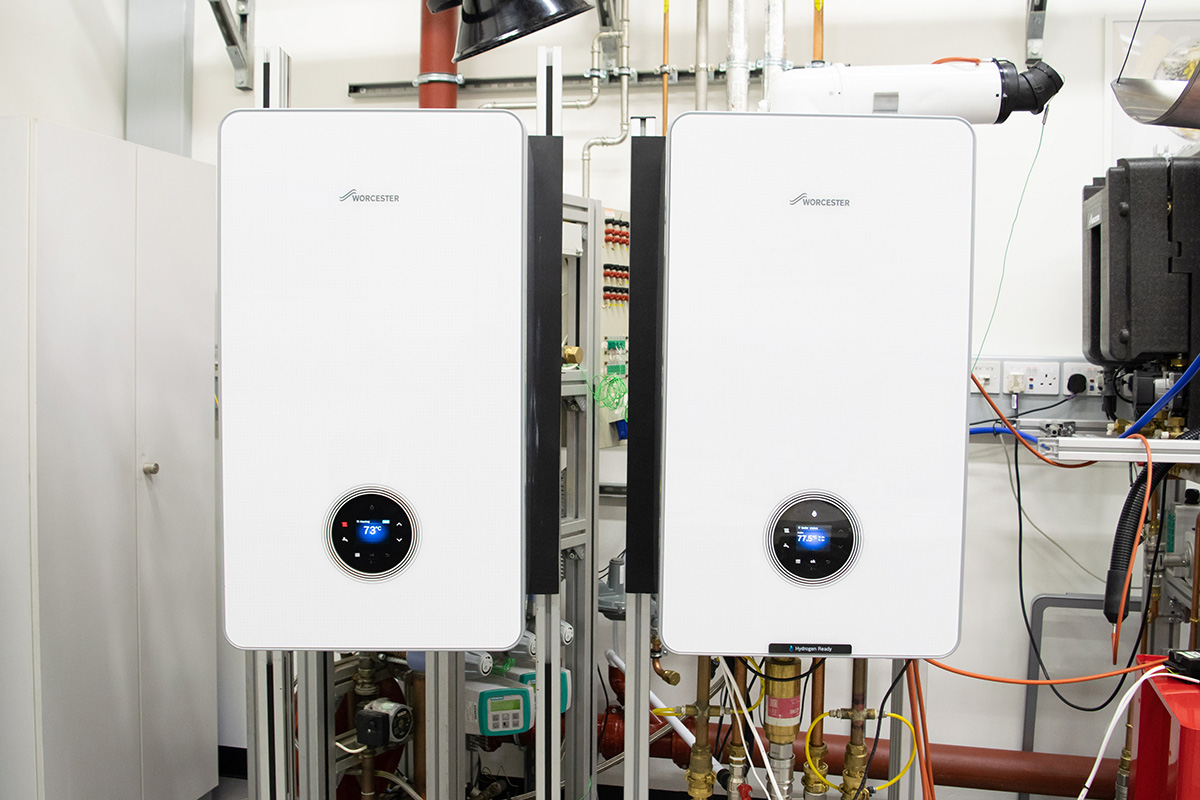
Martyn Bridges, Director of Technical Services at Worcester Bosch, discusses how the new global challenges from 2022 have impacted demand for domestic boilers.
Like all industries, external macro factors play a large part on the performance and consumer demands.
The COVID-19 pandemic altered the landscape but 2022 has brought about its own challenges and the market has acted accordingly to help mitigate these challenges.
As we move toward net zero objectives and away from the pandemic, we have begun to see small changes implemented that will have a huge impact on the industry, homeowners and engineers across the country. These changes, we are both looking forward to and ready to tackle accordingly.
Year to year demand
The market for domestic boilers year to date 2022 is showing a slight reduction when compared to the previous year. 2021 however, was an exceptional year with well over 1.7 million boilers sold.
Some of these numbers can be attributed to playing catch up due to the global pandemic impacting supply chains and also the uncertainty it caused consumers who were reluctant to purchase new boilers and other appliances, soldiering on unless it was absolutely necessary to change.
With that in mind, it is somewhat of an unfair comparison between the two years, however we do expect the market to reach well over 1.6 million units sold this year.
Given that there are approximately 25 million domestic dwellings with a boiler in the UK, you can see that there is high demand considering the ratio.
Although the supply chain issues that we saw during the height of the pandemic have largely alleviated, 2022 has brought about its own challenges that have profoundly impacted consumer spending power. The cost of living crisis has thwarted many plans to upgrade appliances and become more conservative with spending, as fears of energy bill hikes continue to influence our behaviour.
A behavioural challenge
Even in strong times of economic boom, getting consumers to alter their behaviour and adopt new technologies, particularly those that they have been accustomed to their whole lives, can prove to be difficult.
There are various incentives in place to substitute an oil or gas boiler with a heat pump including the Boiler Upgrade Scheme that offers a generous £5,000 grant to those making the switch. There is an ambition now to get as many early adopters on board as possible that will then in turn influence those around them to make the switch and nudge the rest of the population into greener means of heating their home.
However, the timing of it is somewhat unfortunate due to the cost of living crisis that threatens to worsen compounded by the fact that 40% of the electorate have no savings whatsoever to make these types of investments. Therefore, at this moment in time, we don’t foresee a great change in the buying pattern of consumers.
Covering costs
We believe that heat pumps will certainly grow in popularity, and so they should as we greet a greener future and reduce carbon emissions.
Their growth has strayed from the rate of anticipation as a direct result of the cost of living crisis as consumers are concentrating solely on essentials and with a long winter on the horizon, many do not have the resources to make such an investment.
Should people’s boilers fail irreparably, consumers are likely to replace the boiler for another oil or gas version as opposed to investing in the installation of an air or ground source heat pump.
The unfortunate result of this is that often consumers’ hands are tied with a focus on their short-term cash flows to pay their bills. The thought of adopting heat pump technology and a greener future gets bumped down their list of priorities in favour of covering their costs.
There is a bitter irony that one of the driving factors of the energy crisis is due to our reliance on non-renewable energy sources and this will have a knock-on effect of delaying the widespread permeation of heat pumps.
A view to the future
Thankfully, virtually every boiler on the market today is what we call hydrogen blend ready. That is, they can already accept a 20% blend of hydrogen mixed with natural gas and the government have signalled this is their preferred direction.
The blend ready boilers will reduce the reliance on oil and gas and also serve as an introduction to hydrogen powered hybrids.
Consider the automotive industry and how hybrids have paved the way for electric vehicles by instilling confidence and familiarity – the ambition for the home heating industry is much the same. With a view to the future, hydrogen ready boilers will eventually be adaptable to 100% hydrogen power which will make for a smoother transition towards greener energy as the fuel source will be all that has to change as opposed to the entire unit.
The government has expressed faith in hydrogen as a fuel source in their recent energy security bill where they doubled the amount of hydrogen they wanted to see generated by the end of the decade to some ten gigawatts, from the original five gigawatt target which is a significant vote of confidence.
There are several hundred homes already being trialled with blended hydrogen and natural gas and all have run smoothly and without issue. It is crucial for these trials to be known to the wider public to ensure them that hydrogen is a viable option for the future of home heating and empower them to make the choice with confidence and conviction that a greener future is in their hands and could be in their homes.













